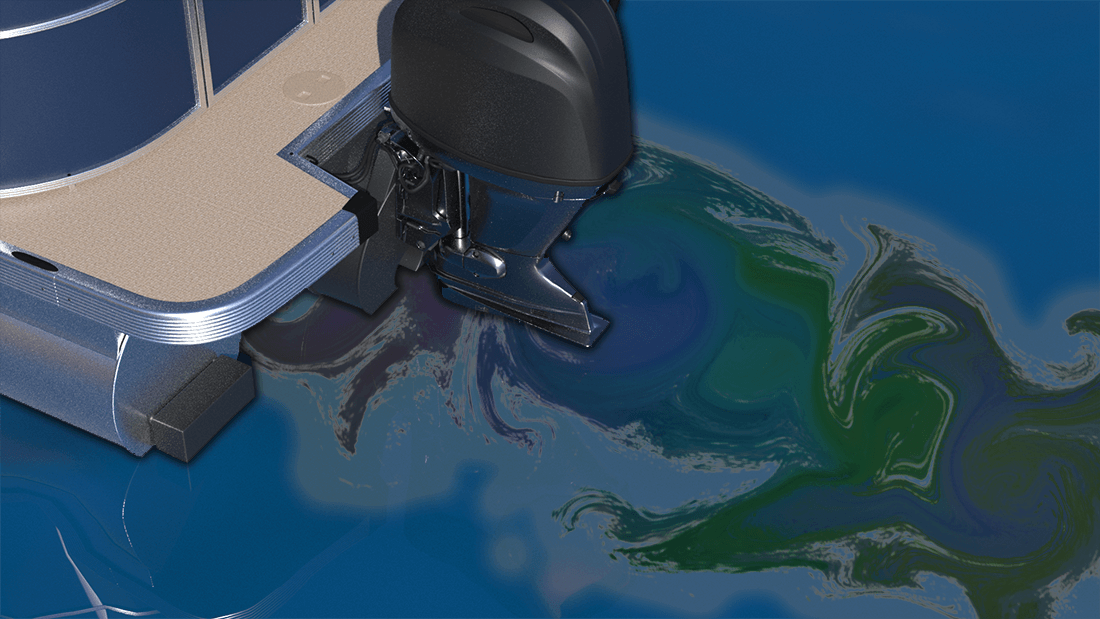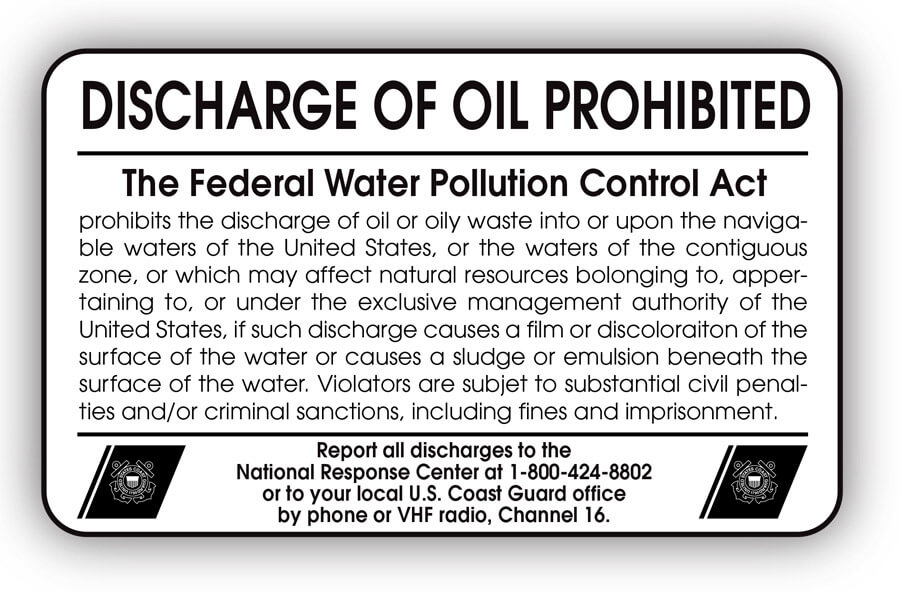Pollution Regulations

Many might think that environmental regulations to protect the waters from pollution were enacted in recent years. In actuality the “Refuse Act of 1899” was designed to prohibit throwing, discharging or depositing any refuse matter of any kind (including trash, garbage, oil and other liquid pollutants) into the waters of the United States. Violators are subject to substantial civil penalties and/or criminal sanctions, including fines and imprisonment.
Oil and Hazardous Substances
The Federal Water Pollution Control Act prohibits the discharge of oil or hazardous substances that may be harmful into U.S. navigable waters. Boats 26 feet in length and over must display a placard at least 5 by 8 inches, made of durable material, fixed in a conspicuous place in the machinery spaces or at the bilge pump control station, stating the following.

Regulations issued under the Federal Water Pollution Control Act require all vessels with propulsion machinery to have a capacity to retain oily mixtures on board. A fixed or portable means to discharge oily waste to a reception facility is required. A bucket or bailer is suitable as a portable means of discharging oily waste on recreational vessels. No person may intentionally drain oil or oily waste from any source into the bilge of any vessel.
You must immediately notify the U.S. Coast Guard if your vessel discharges oil or hazardous substances in the water. Call toll-free 800-424-8802 (In Washington, D.C. 202 267-2675). Report the following information:
-
Location
-
Size
-
Substances
-
Source
-
Color
-
Time observed
